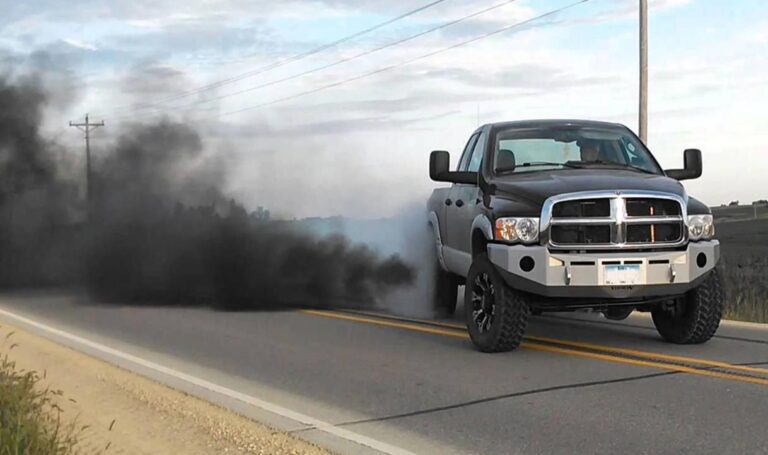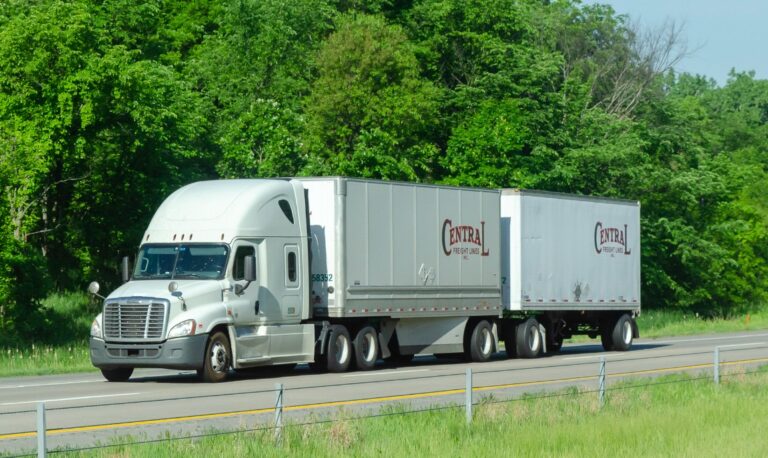Can You Register A Truck Under The GVWR? [Answered]
This article will explain Can You Register A Truck Under The GVWR? This question is vital for truck owners and operators, as it impacts legal compliance, safety, and costs. The GVWR is the maximum total safe weight of your truck, as specified by the manufacturer. This includes the weight of the truck itself, fuel, passengers, cargo, and any additional equipment.
Key Takeaways
- Understanding the concept of Gross Vehicle Weight Rating (GVWR) is crucial for vehicle registration.
- Different states may have varying regulations regarding truck registration under the GVWR.
- Accurate weight classification affects registration fees and compliance with legal standards.
- Knowing the GVWR of your truck ensures safe and legal operation on roads.
Can You Register A Truck Under The GVWR?
Yes, you can register a truck under its GVWR. However, it’s important to understand that the registration process and requirements vary by state. In most cases, the GVWR of a truck is used to determine its classification for registration purposes.

State-Specific Regulations
Every state has its own set of rules and regulations regarding vehicle registration. Some states may have specific guidelines about registering trucks relative to their GVWR. It’s essential to check with your local Department of Motor Vehicles (DMV) to understand these requirements.
Impact on Registration Fees
The GVWR of your truck can directly affect the registration fees. In many states, heavier vehicles, as indicated by a higher GVWR, may incur higher registration fees. This is because heavier trucks typically cause more wear and tear on roadways.
Understanding GVWR and Its Importance
Knowing your truck’s GVWR is not just a regulatory requirement; it’s a matter of safety. Overloading a truck beyond its GVWR can lead to dangerous driving conditions and increased wear on the vehicle.
Safety Concerns
Operating a truck over its GVWR can adversely affect braking, steering, and the overall stability of the vehicle. It increases the risk of accidents and can also void warranties or insurance policies.
Legal Implications
Driving a truck that exceeds its GVWR can result in fines and penalties. It is a violation of federal and state laws, and you may be held liable for any damages or accidents caused due to overloading.
Registration Process and Documentation
Registering a truck involves several steps, including verifying the GVWR and providing necessary documentation to the DMV.

Required Documents
When registering your truck, you’ll need to provide proof of ownership, such as a title or bill of sale, proof of insurance, and a valid identification. Additionally, information regarding the truck’s GVWR is typically required.
Inspection and Compliance
In some states, your truck may need to pass an inspection to verify its condition and ensure it meets safety standards. Compliance with GVWR regulations is often checked during these inspections.
Weight Classifications and Their Impact
Trucks are categorized into different weight classes based on their GVWR. These classifications affect not just registration, but also licensing requirements and road use regulations.
Different Weight Classes
Trucks are typically divided into classes ranging from light-duty to heavy-duty, based on their GVWR. These classifications are used for regulatory, registration, and commercial purposes.
Influence on Operational Restrictions
Certain roads or bridges may have weight limits that restrict the use of heavy-duty trucks. Understanding your truck’s weight classification helps in planning routes and avoiding penalties.
Advantages of Accurate GVWR Registration
Registering your truck with an accurate GVWR has several benefits, including legal compliance, cost savings, and enhanced safety.

Legal Compliance
By registering your truck according to its GVWR, you ensure compliance with state and federal regulations. This avoids legal issues and fines.
Cost-Effective
Accurately classifying your truck can save you money on registration fees and insurance. Overestimating the GVWR might lead to unnecessary expenses.
Does Registered Weight Have Any Bearing On CDL / Commercial Status?
The registered weight of a vehicle can indeed have implications for a Commercial Driver’s License (CDL) and its commercial status. A CDL is required in the United States for operators of certain types of vehicles, typically based on their size, weight, and intended use.
The Federal Motor Carrier Safety Administration (FMCSA) stipulates that drivers must have a CDL to operate vehicles with a Gross Vehicle Weight Rating (GVWR) of 26,001 pounds or more. Therefore, if a truck’s registered weight falls into this category, it directly affects the requirement for a CDL.
In addition, commercial status is often determined by the combination of the vehicle’s GVWR and its use. For instance, vehicles used for commercial purposes that exceed certain weight thresholds may require additional registrations and adhere to specific regulations, including hours of service, maintenance standards, and safety inspections.
It’s important to note that each state might have specific requirements or exceptions. Therefore, truck owners and operators should check with their state’s Department of Transportation or equivalent agency for precise regulations.
Can GVWR Be Lowered?
Technically, the GVWR of a truck, as set by the manufacturer, is a fixed rating and is not meant to be altered. The GVWR is determined based on the vehicle’s structural integrity, braking system, engine capacity, and other safety considerations.
Lowering the GVWR would imply that the vehicle’s structural capacity is being deliberately underrated, which can lead to safety hazards and legal issues.

However, if modifications are made to a vehicle that would decrease its ability to safely carry weight – such as changing to a smaller engine or weaker suspension system – the vehicle could potentially be reclassified with a lower GVWR.
This reclassification process is complex and would typically involve certification from an engineer or the manufacturer, along with approval from relevant motor vehicle authorities. It’s crucial to note that such modifications can affect the vehicle’s performance, safety, insurance, and legality for certain uses.
How Do You Register A 33000 Truck As A 26000?
Registering a truck with a GVWR of 33,000 pounds as one with a GVWR of 26,000 pounds is not a straightforward process and might not be legally permissible.
The GVWR is a specification set by the manufacturer based on the vehicle’s design and capacity. If a truck is designed and built to handle a GVWR of 33,000 pounds, it is recognized by that capacity for regulatory and safety purposes.
If an owner seeks to register the truck at a lower GVWR to avoid certain regulations (like CDL requirements for trucks over 26,001 pounds), this could be considered fraudulent or unsafe, depending on the circumstances.
Any attempt to reclassify the vehicle’s GVWR would involve extensive modifications to the vehicle, re-certification, and approval from the relevant motor vehicle department. This process could be costly, time-consuming, and may not always be approved.
For accurate and legal guidance, it’s essential to consult with the state’s Department of Motor Vehicles (DMV) or a similar regulatory body. They can provide information on the feasibility and legality of such a reclassification.
Conclusion
Registering a truck under its GVWR is not only possible but also advisable for legal, safety, and financial reasons. Understanding the significance of GVWR and adhering to state-specific regulations ensures a smooth and compliant registration process. Accurate GVWR registration is key to operating your truck legally and safely on the roads.
Top FAQ’s
How does GVWR impact a truck’s road usage and restrictions?
The GVWR impacts where a truck can legally travel. Certain roads or bridges may have weight limits that prohibit the use of trucks exceeding specific GVWRs. Knowing your truck’s GVWR is essential for route planning and avoiding penalties.
Is it necessary to know the GVWR for commercial trucks?
Absolutely. For commercial trucks, knowing the GVWR is crucial for compliance with transportation regulations, determining the appropriate licensing, and ensuring the safety of the vehicle under different load conditions.
Can changing a truck’s configuration affect its GVWR?
Yes, modifying a truck’s configuration can affect its GVWR. For instance, adding heavy equipment might increase the overall weight, potentially exceeding the original GVWR. It’s important to reevaluate the GVWR after significant modifications.
How do different states handle truck registration regarding GVWR?
Truck registration processes vary by state. Some states have specific guidelines about registering trucks for their GVWR. It’s essential to consult your local DMV for the exact requirements in your state.

Welcome to the exhilarating world of Matt Rex, a professional car racer turned renowned vehicle enthusiast. Immerse yourself in his captivating blog as he shares heart-pounding adventures, expert reviews, and valuable insights on cars, trucks, jets, and more. Fuel your passion for speed and discover the beauty of vehicles through Matt’s engaging stories and meticulous expertise. Join the ever-growing community of enthusiasts who find inspiration and expert advice in Matt Rex’s blog—a digital hub where the thrill of speed meets the pursuit of knowledge.







